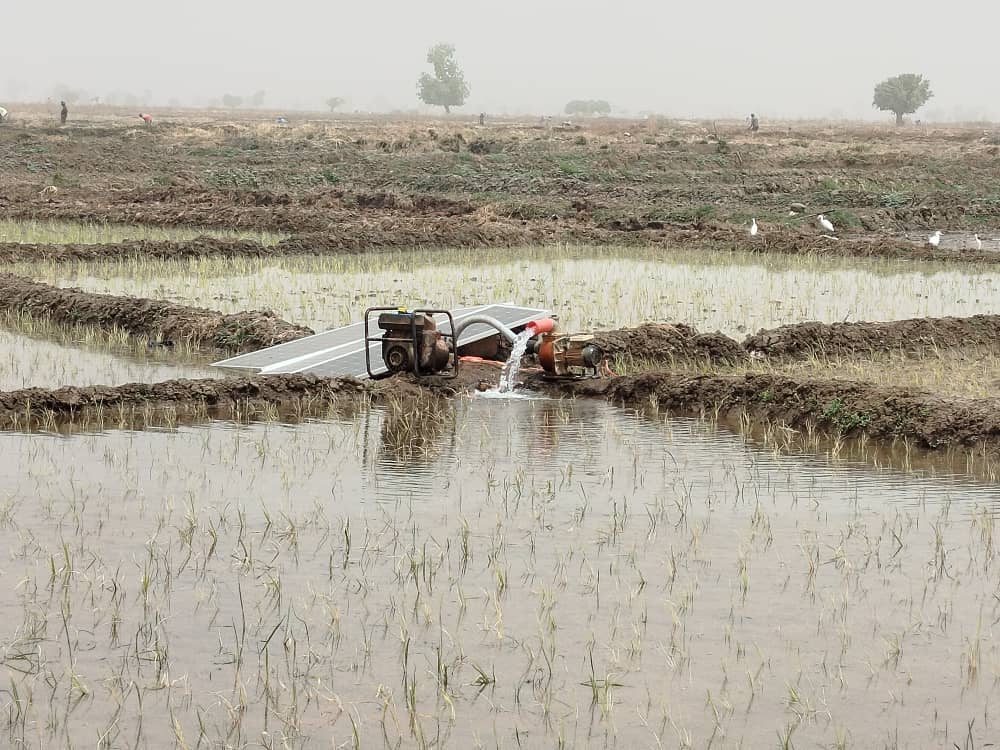Building Climate Resilience in Agricultural Communities: A Community-Centered Approach
How collaborative farming practices and community engagement are transforming climate adaptation strategies across Nigeria's agricultural regions, demonstrating the power of community-centered approaches to building resilience.

The Challenge of Climate Change in Agriculture
Climate change poses unprecedented challenges to agricultural communities across Nigeria, threatening food security, livelihoods, and rural development. Rising temperatures, erratic rainfall patterns, and extreme weather events are disrupting traditional farming practices that have sustained communities for generations. However, innovative community-centered approaches are emerging as powerful tools for building resilience and adaptation capacity.
Our research across multiple agricultural communities in Nigeria reveals that the most successful climate adaptation strategies emerge from collaborative approaches that combine traditional knowledge with modern technologies. These community-centered initiatives are not only more sustainable but also more effective in addressing location-specific challenges.
The Power of Collective Action
Community-centered climate resilience goes beyond individual farm-level adaptations. It involves collective decision-making, shared resource management, and coordinated responses to climate risks. This approach recognizes that climate impacts affect entire communities and that solutions must be developed and implemented collectively to be truly effective.

Solar-powered irrigation systems are enabling communities to maintain agricultural productivity even during extended dry periods, demonstrating the integration of technology with traditional practices.
Key Strategies for Community Resilience
1. Collaborative Water Management
Water scarcity is one of the most pressing challenges facing agricultural communities. Successful communities are developing shared water management systems that optimize resource use and ensure equitable access during drought periods:
- Community-managed irrigation systems: Shared infrastructure that reduces individual costs while improving water efficiency
- Rainwater harvesting initiatives: Collective storage systems that capture and store rainwater during wet seasons
- Groundwater conservation practices: Community agreements on sustainable groundwater extraction rates
- Water user associations: Formal organizations that manage water resources and resolve conflicts
2. Diversified Farming Systems
Farmers are adopting crop diversification and integrated farming approaches to reduce vulnerability to climate variability:
- Climate-resilient crop varieties: Adoption of drought-tolerant and heat-resistant crop varieties
- Agroforestry integration: Combining trees with crops to improve soil health and provide additional income sources
- Livestock-crop integration: Mixed farming systems that provide multiple income streams and improve resource efficiency
- Seasonal crop rotation: Coordinated rotation schedules that optimize soil health and pest management
3. Knowledge Sharing and Capacity Building
Effective community resilience requires continuous learning and knowledge exchange:
- Farmer field schools: Participatory learning programs that combine traditional and scientific knowledge
- Peer-to-peer learning networks: Platforms for farmers to share experiences and best practices
- Climate information services: Access to weather forecasts and climate projections for informed decision-making
- Technology training programs: Capacity building for new agricultural technologies and practices
Technology Integration and Innovation
The integration of renewable energy technologies, particularly solar-powered systems, is revolutionizing agricultural practices in rural communities. These technologies not only provide reliable energy access but also enable more efficient resource management and improved productivity.

Solar-powered water pumping systems provide reliable irrigation even in remote areas without grid electricity access.
Solar-Powered Agricultural Systems
- Solar irrigation systems: Reliable water pumping for crop irrigation
- Solar-powered processing equipment: Post-harvest processing and value addition
- Solar cold storage: Preservation of perishable crops and reduction of post-harvest losses
- Solar-powered communication systems: Access to market information and weather updates
Case Study: Kebbi State Solar-Powered Community Farming
Community Transformation Through Technology
In Kebbi State, a community of 200 farming families implemented a solar-powered irrigation system that transformed their agricultural productivity and climate resilience. The project demonstrates how technology can enhance traditional farming practices without disrupting community structures.
Key Success Factors:
- • Community ownership and management of the solar system
- • Integration with existing water user associations
- • Training programs for system maintenance and operation
- • Flexible payment systems that accommodate seasonal income patterns
Economic and Social Benefits
Community-centered climate resilience approaches deliver multiple benefits beyond agricultural productivity:
Economic Benefits
- Increased farm income: Higher yields and reduced losses translate to improved household incomes
- Reduced production costs: Shared infrastructure and bulk purchasing reduce individual costs
- Market access: Collective marketing improves bargaining power and market access
- Value addition opportunities: Community processing facilities enable value-added products
Social Benefits
- Strengthened social cohesion: Collective action builds community bonds and trust
- Enhanced food security: Diversified production systems improve household nutrition
- Women's empowerment: Participation in community initiatives enhances women's roles in decision-making
- Youth engagement: Technology integration attracts young people to agriculture
Challenges and Solutions
While community-centered approaches show great promise, they also face several challenges that must be addressed:
Common Challenges
- Initial capital requirements: High upfront costs for infrastructure and technology
- Technical capacity gaps: Limited technical skills for system maintenance and operation
- Coordination difficulties: Challenges in organizing and maintaining collective action
- Market access barriers: Limited connections to profitable markets
Proven Solutions
- Blended financing mechanisms: Combining grants, loans, and community contributions
- Capacity building programs: Comprehensive training for technical and management skills
- Strong governance structures: Clear rules and accountability mechanisms
- Market linkage programs: Connecting communities to buyers and value chains
Policy Recommendations
Based on our research findings, we recommend several policy interventions to scale up community-centered climate resilience approaches:
Government Support Measures
- Establish community resilience funds to provide accessible financing for local adaptation initiatives
- Develop technical assistance programs for renewable energy integration in agricultural communities
- Create knowledge-sharing platforms to facilitate learning between communities
- Strengthen local governance structures for effective resource management
- Integrate traditional knowledge into formal climate adaptation planning processes
Institutional Support
- Extension service reform: Reorient agricultural extension to support community-based approaches
- Research partnerships: Collaborate with communities on participatory research
- Financial service innovation: Develop climate-smart financial products for rural communities
- Market infrastructure: Invest in rural market infrastructure and value chains
Scaling Up Success
The success of community-centered climate resilience approaches in Nigeria's agricultural sector demonstrates the potential for scaling these models across the continent. Key factors for successful scaling include:
- Adaptive implementation: Tailoring approaches to local contexts and conditions
- Multi-stakeholder partnerships: Engaging government, private sector, and civil society
- Long-term commitment: Sustained support for community capacity building
- Monitoring and learning: Continuous improvement based on experience and feedback
Looking Forward
As we continue to face increasing climate challenges, the integration of community knowledge, modern technology, and supportive policy frameworks will be essential for building truly resilient agricultural systems. The experiences from Nigeria demonstrate that communities are not just beneficiaries of climate adaptation efforts – they are the primary agents of change.
The path forward requires continued investment in community capacity, technology access, and institutional support. By empowering communities to lead their own climate resilience efforts, we can build agricultural systems that are not only more resilient to climate change but also more equitable, sustainable, and prosperous.
Community Engagement
YCTF is working with agricultural communities across Nigeria to implement and scale community-centered climate resilience approaches. We invite community organizations, development partners, and policymakers to join our efforts. Contact our Resilience Programme team to learn about partnership opportunities and technical assistance programs.